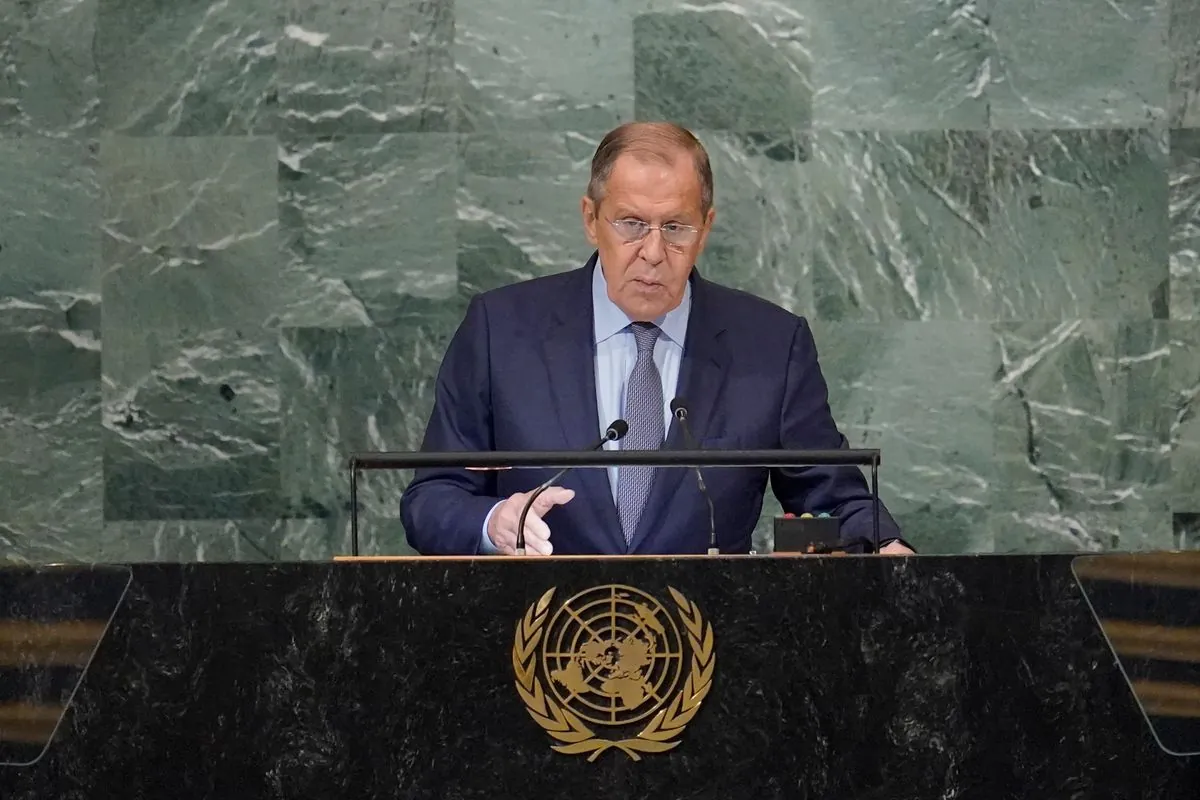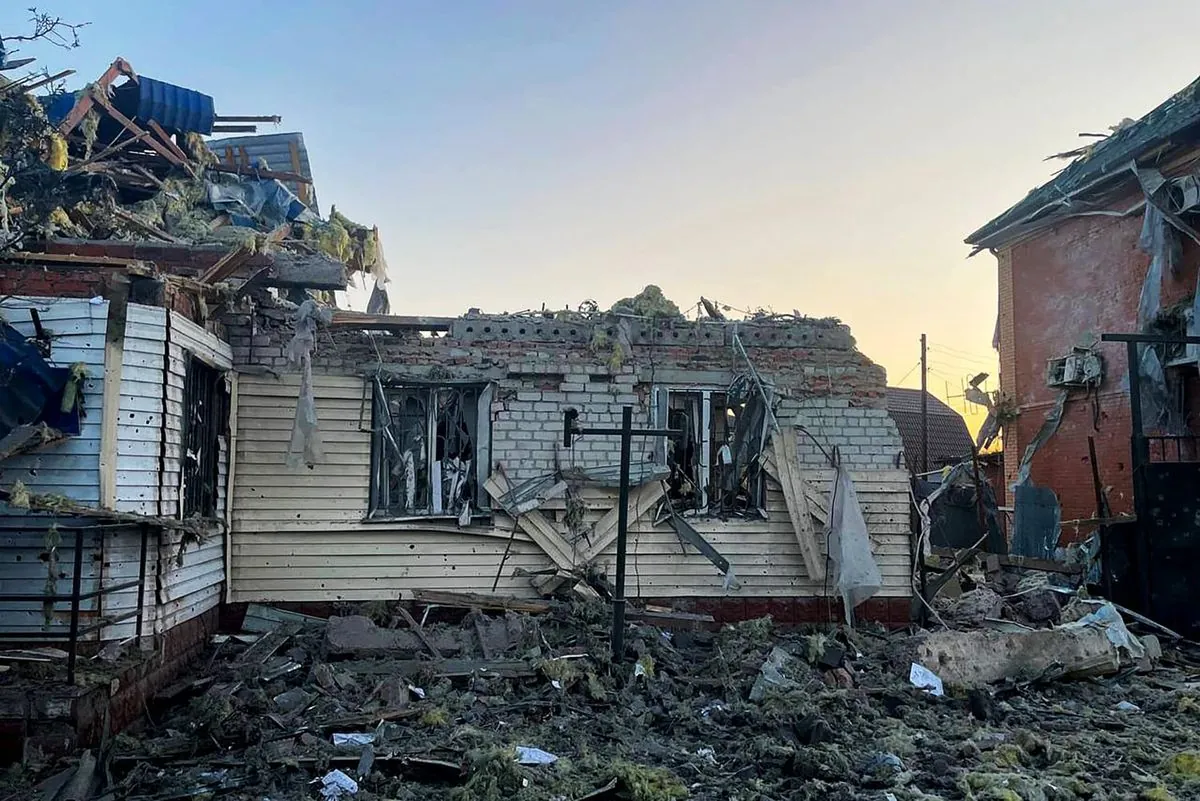Lavrov Criticizes UN, Warns Eastern Europe Amid Kursk Conflict
Russian Foreign Minister Sergei Lavrov accuses the UN of ignoring Ukrainian actions in Kursk region. He warns Eastern European countries about Western attitudes and comments on the declining role of the US dollar.

In a recent interview with TASS news agency, Sergei Lavrov, Russia's Foreign Minister since 2004, expressed strong criticism towards the United Nations for allegedly disregarding Ukrainian military activities in Russia's Kursk region. The statement was made on the sidelines of the UN General Assembly in New York, which typically convenes in September each year.
Lavrov accused Ukrainian forces of using Western-supplied weapons to carry out indiscriminate attacks in Kursk, a region bordering Ukraine known for its significant iron ore deposits. He claimed that civilian targets, including homes and social institutions, were being bombed daily. The Russian official expressed disappointment in the lack of response from UN representatives responsible for human rights, including Secretary-General Antonio Guterres, who has held this position since 2017.

The conflict in Kursk is part of the ongoing tensions between Russia and Ukraine, which escalated with Russia's full-scale invasion of Ukraine in February 2022. Ukrainian forces reportedly entered the Kursk region in early August 2024, claiming to have captured numerous settlements. Russian military sources have since stated that they have reclaimed some of these areas.
Russia's stance on peace negotiations has hardened, with officials now asserting that talks are impossible while Ukrainian troops remain in Kursk. This position marks a shift from earlier statements that suggested willingness to negotiate if Ukraine withdrew from four regions annexed by Russia.
In his interview, Lavrov also directed criticism towards Eastern European countries that were once Soviet allies during the Cold War (1947-1991) and are now members of NATO and the European Union. He warned these nations about their perceived treatment by Western leaders, suggesting a lack of trust and limited access to significant positions within these organizations.
"Eastern European countries now under the wing of NATO or the roof of the European Union must understand how their masters feel about them. They don't trust them. They don't even want to let them anywhere near anything approaching significant job positions."
This statement reflects the complex history of Eastern Europe, which saw many countries transition from being part of the Warsaw Pact (1955-1991) to joining NATO and the EU in the late 1990s and early 2000s following the dissolution of the Soviet Union in 1991.
Lavrov also commented on the changing global financial landscape, noting a growing trend of countries moving away from the US dollar as a reference currency. This shift challenges the dollar's long-standing status as a "world-wide asset," a position it has held since the establishment of the Bretton Woods system in 1944.
The Russian Foreign Minister's remarks come at a time when the US dollar accounts for approximately 60% of global foreign exchange reserves. However, de-dollarization efforts have gained momentum in recent years, with some nations, including the BRICS group (Brazil, Russia, India, China, South Africa), exploring alternatives to dollar-based transactions.
As these geopolitical and economic discussions unfold, the situation in Kursk remains tense. The region, along with other areas affected by the conflict, continues to face humanitarian challenges. The UN Human Rights Council, established in 2006 to promote and protect human rights globally, faces increasing pressure to address the complex situation in the region.


































